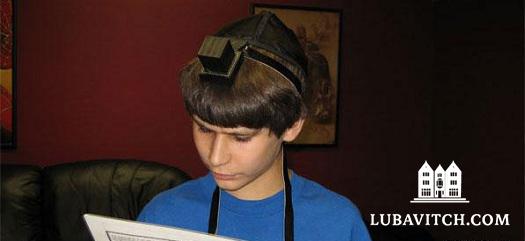“We were past Plan Z.” That’s how Alan Rubenstein describes the lead up to his decision to send his son to Discovery Academy, a residential treatment center (RTC) for troubled teens in Provo, Utah.
Daniel Rubenstein had severe behavioral challenges. His teachers had long despaired of keeping him in check, and his parents were at wit’s end. So at age seventeen, Daniel was sent off to a camp in Switzerland that catered to other teens like him.
“Soon after Daniel began camp in Switzerland, we got a message on our phone one Saturday night that Daniel was already on a plane back to America and would be arriving shortly,” says Alan Rubenstien, an accountant.
But at Discovery Academy, a boarding school that spares no expense for parents who shell out a small fortune in a last ditch effort to redirect their teens, there was a piece missing from the program. While Daniel found himself in a setting where love, care, and therapeutic rehabilitation were physically manifest, Jewish ideals and faith were nonexistent.
Enter Rabbi Benny Zippel, Chabad representative in Utah since 1992, together with his wife, Sharonne. For the past nineteen years, he has touched hundreds of teens in various residential treatment centers through Project H.E.A.R.T (Hebrew Education for At-Risk Teens). He hits the road at least four days a week to visit RTC’s across the state, fifty-two weeks a year.
“Rabbi Zippel reminded me that I’m a Jew, which is easy to forget, living with non-Jews,” says Daniel. He went on to study in Yeshiva in Israel for six years, and today, he’s married with one child, a full time Kollel student.
Rabbi Zippel’s work injects Jewish meaning for teens on the road to recovery. After meeting teens at RTC’s, encouraging them to don tefillin and light Shabbos candles, he invites them to spend Shabbos and Jewish holidays at Chabad. And when students’ parents come to visit Utah and join them at Chabad, says Zippel, “their biggest joy is to share what they’ve learned with their parents.”
But Zippel balances a tight schedule. The only Chabad representative in Utah, he also offers a range of Jewish educational and social programs at the Chabad center, including Hebrew school, weekly classes and holiday programming. There are approximately 5,000 Jewish people in Utah.
“There’s a lot of demand, to see all these Jewish kids, so I try to manage my time as best as I could,” he says.
For Jason Peloso, 23, meeting Rabbi Zippel at his alma mater — Telos RTC in Orem UT — was integral to his success in the program. He began wrapping tefillin every day, “because it became a therapeutic ritual.”
“There were many therapists at the school, but Rabbi was different,” says Peloso, a business major living in Fairlawn, NJ. “He brought so much meaning into my life without forcing anything on me, so that motivated me to look forward to his visits and get through the semester.”
Increasingly, disconnected Jewish students who have encountered Rabbi Zippel are discerning a winning combination: Jewish involvement as a significant component in their rehabilitation at RTC’s. At times, even this rigorous program “feels like a temporary fix, there’s no guarantee that you won’t relapse somewhere down the track,” explains Adam Finkel, whose parent’s sent him from home in New York to Island View RTC in Syracuse, UT when he was fifteen. The lack of faith-based instruction for troubled teens in RTC’s results in a weak link in the chain to recovery.
“Before Rabbi introduced me to my faith and traditions I would have gone back to certain behaviors, I had no reason to follow any set of morality,” says Finkel, today a student in an Israeli Yeshiva. For hundreds of Jewish adolescents struggling to find stability in Utah’s many RTC’s, Rabbi Zippel aims to reconnect these youth and cement their recovery with Jewish values and beliefs.
To reach their goals, it is essential for students “to know that they aren’t in this alone, that G-d has not forgotten about them,” says Tami Harris, a chaplain at Heritage Schools. In 2010, Harris assisted Zippel in his efforts to kosher the kitchens at her school, marking an unprecedented step toward more Jewish infrastructure at RTC’s in Utah.
Rabbi Zippel quietly dreams of the ultimate care for these teens: he hopes to found a residential treatment center that would rival other RTC’s in quality standards and service Jewish kids specifically. With today’s challenges for Jewish youth, “such a center,” he believes, “is desperately needed.”
When Lynn Rubenstein recalls the turbulence of her son’s formative years, she wishes that this had been an option.
“There is definitely a need for this. Parents who are going through what I went through would feel so much better about sending their child to a school with other Jewish children,” she says.
To donate to Project H.E.A.R.T, visit JewishUtah.com/donate
*Several names have been changed upon request

Be the first to write a comment.